Posts Tagged ‘parenting advice’

AJGpr client, educational consultant Angelina Arrington, Founder of Academic Savvy, has just posted her second blog installation in her Summer Savvy Series to kids learning and having fun during the summer break when statistics shows that math and reading levels drop during these months. Here is Part 2.
Summer Savvy Part 2: Your Kitchen: The perfect spot for family fun and summer learning!
When I was growing up, our summers meant lazy days spent playing softball at the park, swimming at the local public pool, helping my school teacher mother prepare her classroom for the fall, following my grandmother around the kitchen, and running around outside with other kids from the block until the street lights came on. July and August were filled with all sorts of adventures, and my friends and I returned to school in September with plenty of stories to tell. Cooking and experimenting with food was one of my favorite activities. I’ve been fiddling around the kitchen since I was about seven. One of my early specialties was cinnamon toast, and I eventually graduated to lemon cakes and peach cobblers under the tutelage of my grandmother. Those summer days acting as her sous chef are still some of my fondest memories.
Summer is the perfect time to get in the kitchen and whip something up with your kids! It can be challenging for families to find the energy to cook together during the school year. After a full day at work and school, sports practice, and tutoring, oftentimes the family is running on empty. Use the summer break to slow the pace and create fantastic memories right in your kitchen. Parents, your kitchen can transform into a great science lab and math workshop. Include you kids in the many skills to be learned while working away at the kitchen counter: measurements, fractions, categorizing lists, learning to tell time, states of matter, making hypotheses, and much more.
The most important outcome of cooking with your children, however, is the time spent together as a family being creative and sharing ideas and lots of laughs. So, get out your measuring cups and spoons, cookie sheets, and rolling pins, grab fresh fruit, almonds and rainbow sprinkles, don an apron (or a lab coat if you’re feeling adventurous), and turn on some fun tunes. The Internet is chocked full of recipes for all ages, and I’ve listed a few simple recipes below that make a big splash with school-age children. Bon appétit!
Homemade Ice Cream in a Coffee Can
Tips and recipes for baking cookies with kids

AJGpr client Emma Jenner, a child development and behavioral specialist and author of the new parenting book Keep Calm and Parent On: A Guilt-Free Approach to Raising Children by Asking More from Them and Doing Less (Atria, July 15th) also blogs for the Huffington Post’s Parenting section. Her most recent post – 5 Reasons Modern-Day Parenting is in Crisis (the full article is also posted below) has already received over 255K likes.
Emma, a British native, spent 17 years as a professional nanny and baby nurse for a variety of high profile and celebrity families in England, Germany, and the United States. American audiences know her best as “Nanny Emma,” from the 2008 TLC series Take Home Nanny, when she traveled across America helping families put harmony back in their homes.
Today, Emma is a parenting consultant and founder of Emma’s Children. So, in addition to in-person consultations, Emma is available by phone, face-time, and SKYPE, to help families nationally and internationally create a loving and nurturing home environment.
As an author and consultant, Emma offers the best of both British and American traditions to help parents navigate the often complex journey of raising children from birth to 7 years old. Her book, Keep Calm and Parent On, is a treasure trove of common sense, balanced, and holistic parenting tools and solutions. Emma’s favorite mantra is, “If parents are in control, they can enjoy their children more.” And what could be more enjoyable than well behaved, respectful, healthy, thriving kids?
—————————————————————————————————————————————
From the Huffington Post
5 REASONS MODERN-DAY PARENTING IS IN TROUBLE
I generally am quite an optimistic person. I tend to believe that everything will work out for the best unless the evidence is overwhelmingly to the contrary, and anyone who knows me will tell you that I am not prone to drama. That’s why when I say that modern parenting is in serious trouble — crisis, even — I hope you’ll listen, and listen carefully. I’ve worked with children and their parents across two continents and two decades, and what I’ve seen in recent years alarms me. Here are the greatest problems, as I see them:
1. A fear of our children.
I have what I think of as “the sippy cup test,” wherein I will observe a parent getting her toddler a cup of milk in the morning. If the child says, “I want the pink sippy cup, not the blue!” yet the mum has already poured the milk into the blue sippy cup, I watch carefully to see how the parent reacts. More often than not, the mum’s face whitens and she rushes to get the preferred sippy cup before the child has a tantrum. Fail! What are you afraid of, mum? Who is in charge here? Let her have a tantrum, and remove yourself so you don’t have to hear it. But for goodness’ sake, don’t make extra work for yourself just to please her — and even more importantly, think about the lesson it teaches if you give her what she wants because she’s thrown a fit.
2. A lowered bar.
When children misbehave, whether it’s by way of public outburst or private surliness, parents are apt to shrug their shoulders as if to say, “That’s just the way it is with kids.” I assure you, it doesn’t have to be. Children are capable of much more than parents typically expect from them, whether it’s in the form of proper manners, respect for elders, chores, generosity or self-control. You don’t think a child can sit through dinner at a restaurant? Rubbish. You don’t think a child can clear the table without being asked? Rubbish again! The only reason they don’t behave is because you haven’t shown them how and you haven’t expected it! It’s that simple. Raise the bar and your child shall rise to the occasion.
3. We’ve lost the village.
It used to be that bus drivers, teachers, shopkeepers and other parents had carte blanche to correct an unruly child. They would act as the mum and dad’s eyes and ears when their children were out of sight, and everyone worked towards the same shared interest: raising proper boys and girls. This village was one of support. Now, when someone who is not the child’s parent dares to correct him, the mum and dad get upset. They want their child to appear perfect, and so they often don’t accept teachers’ and others’ reports that he is not. They’ll storm in and have a go at a teacher rather than discipline their child for acting out in class. They feel the need to project a perfect picture to the world and unfortunately, their insecurity is reinforced because many parents do judge one another. If a child is having a tantrum, all eyes turn on the mum disapprovingly. Instead she should be supported, because chances are the tantrum occurred because she’s not giving in to one of her child’s demands. Those observers should instead be saying, “Hey, good work — I know setting limits is hard.”
4. A reliance on shortcuts.
I think it’s wonderful that parents have all sorts of electronics to help them through airline flights and long waits at the doctor’s office. It’s equally fabulous that we can order our groceries online for delivery, and heat up healthy-ish food at the touch of a button on the microwave. Parents are busier than ever, and I’m all for taking the easy way when you need it. But shortcuts can be a slippery slope. When you see how wonderful it is that Cayou can entertain your child on a flight, don’t be tempted to put it on when you are at a restaurant. Children must still learn patience. They must still learn to entertain themselves. They must still learn that not all food comes out steaming hot and ready in three minutes or less, and ideally they will also learn to help prepare it. Babies must learn to self-soothe instead of sitting in a vibrating chair each time they’re fussy. Toddlers need to pick themselves up when they fall down instead of just raising their arms to mum and dad. Show children that shortcuts can be helpful, but that there is great satisfaction in doing things the slow way too.
5. Parents put their children’s needs ahead of their own.
Naturally, parents are wired to take care of their children first, and this is a good thing for evolution! I am an advocate of adhering to a schedule that suits your child’s needs, and of practices like feeding and clothing your children first. But parents today have taken it too far, completely subsuming their own needs and mental health for the sake of their children. So often I see mums get up from bed again and again to fulfill the whims of their child. Or dads drop everything to run across the zoo to get their daughter a drink because she’s thirsty. There is nothing wrong with not going to your child when she wants yet another glass of water at night. There’s nothing wrong with that dad at the zoo saying, “Absolutely you can have something to drink, but you must wait until we pass the next drinking fountain.” There is nothing wrong with using the word “No” on occasion, nothing wrong with asking your child to entertain herself for a few minutes because mummy would like to use the toilet in private or flick through a magazine for that matter.
I fear that if we don’t start to correct these five grave parenting mistakes, and soon, the children we are raising will grow up to be entitled, selfish, impatient and rude adults. It won’t be their fault — it will be ours. We never taught them any differently, we never expected any more of them. We never wanted them to feel any discomfort, and so when they inevitably do, they are woefully unprepared for it. So please, parents and caregivers from London to Los Angeles, and all over the world, ask more. Expect more. Share your struggles. Give less. And let’s straighten these children out, together, and prepare them for what they need to be successful in the real world and not the sheltered one we’ve made for them.
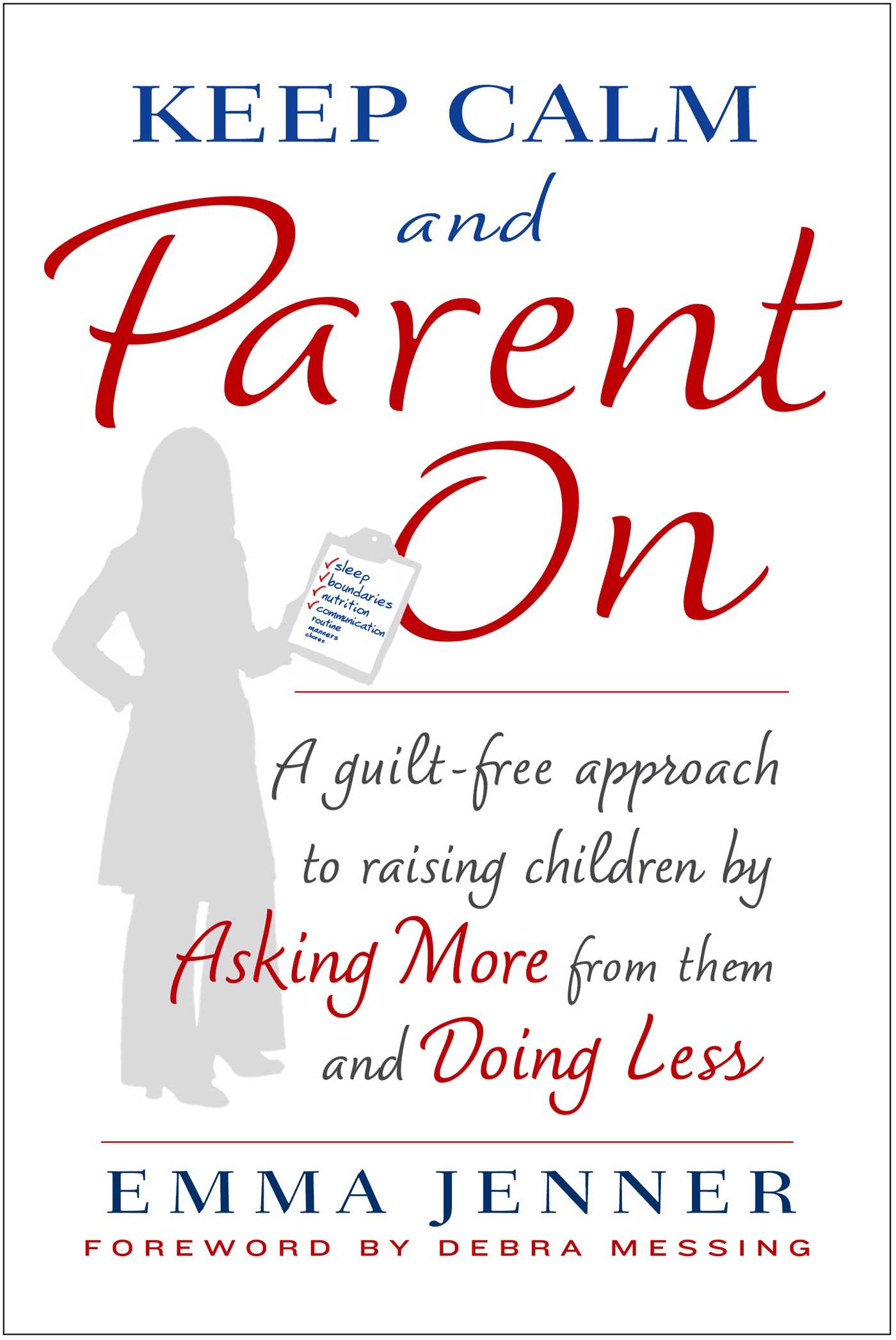
On May 19th, AJGpr client, parenting expert Emma Jenner received a great review from Publishers Weekly for her new book, Keep Calm and Parent On: A Guilt-Free Approach to Raising Kids by Asking More from Them And Doing Less.
A British native, Emma spent over 17 years as a professional nanny and baby nurse for a variety of high profile and celebrity families in England, Germany, and the United States. Often referred to as a “Modern-day Mary Poppins” she was the star of TLC’s Take Home Nanny in 2008, and traveled across America helping families put harmony back in their homes. Emma offers a treasure trove of common sense, balanced, and holistic parenting tools in Keep Calm and Parent On.
Here’s what Publishers Weekly had to say:
“British nannies are all the rage, and this contribution from parenting expert Jenner, former star of TLC’s Take Home Nanny, hits the usual topics of sleep, food, and discipline. Where she sets her parenting advice apart is in chapters such as “The Dignified Parent” and “The King’s Speech.” In the former, she highlights the most important relationship in the household; she even recommends that parents greet each other before greeting children. The latter focuses on communication, with advice on how children should communicate with parents and the world, as well as how parents should communicate respectfully with children and each other. Manners are important to Jenner: children should behave properly at the dinner table, say thank you, and greet others properly, right down to learning how to shake hands with grown-ups around age four. Parents should model good manners—being polite with children and respecting their physical space. The author has high standards, but notes, “I’m not a fan of British households that are all rules and limits and no love.” She provides helpful checklists to “take the guilt and some of the angst out of parenting by putting daily struggles and common problems in objective, systematic terms.” Parents will welcome this balanced approach.”

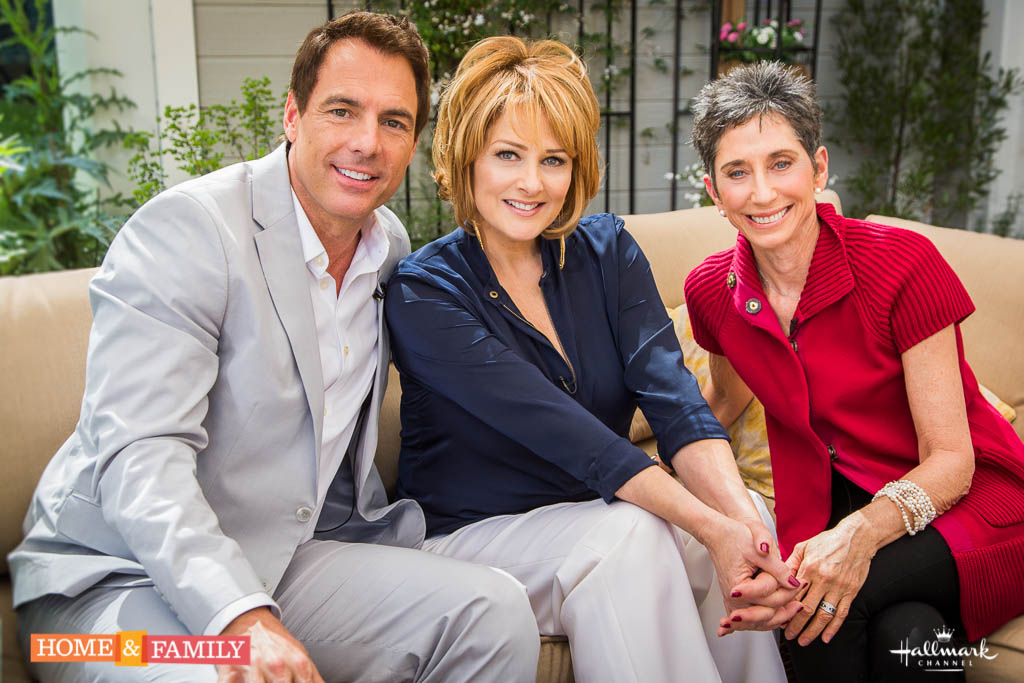 How do you define bratty behavior and how do you stop it?
How do you define bratty behavior and how do you stop it?
That is the question Hallmark Channel’s Home & Family co-hosts, bestselling author and chef Christina Ferrare and personality Mark Steines asked AJGpr client — parenting expert Betsy Brown Brown.
Betsy affirmed, “What parent hasn’t thought her child was a brat at one point or another And what child hasn’t been a brat at one point or another?” However a parent defines brattiness —
- Your child resorts to crying or yelling when they want something.
- Your child constantly throw tantrums when they don’t get what they want.
- Your child is rude to you, other adults, and even to other children.
- Your child refuses to share with other children.
- Your child always has to be the center of attention.
the list goes on… whether your child really is a brat, at risk of becoming one, or is simply trying to grow up, Betsy, a renowned child development and behavior specialist, shares her tried and tested brat busters with the Home & Family audience.
Tune in on Tuesday, March 18th at 10:00 am/9:00 am Central to watch Betsy Brown Brown talk about “How to Bratproof Your Child” on Home & Family.
ABOUT BETSY
Betsy is the bestselling author of Just Tell Me What to Say: Sensible Tips and Scripts for Perplexed Parents (HarperCollins) and You’re Not The Boss Of Me: Bratproofing Your Four To Twelve Year Old (HarperCollins). She blogs on parenting for the Huffington Post and has an “Ask Betsy” column in the Pailsadian Post and is an expert source for the on line parenting video resource Kids in the House.

Journalist Amber Narsulla, interviewed AJGpr client, Betsy Brown Braun for the online parenting site mom.me. Betsy is a child development and behavior specialist who weighed in on the question of taking kids out of school for family vacations.
Betsy says, “Some children are flexible and will transition easily back into the classroom, while others will struggle.”
For the full story click here.
Besty is the bestselling author of Just Tell Me What to Say and You’re Not the Boss of Me.
Why Your Kid Whines — and How to Get Her to Stop iVillage Turns To Betsy Brown Braun For Strategies
2012

Why Your Kid Whines — and How to Get Her to Stop
Bonnie Vengrow posted and article on children and whining on iVillage. To get some perspective on this developmental stage of childhood, she turned to my client, Betsy Brown Braun, child development and behavior specialist and best selling author of Just Tell Me What to Say and You’re Not the Boss of Me.
Here are the “expert strategies to stop your kid’s whining.”
You and your kiddo are chugging along nicely when, one day, she figures out that if she raises her voice, repeats herself over and over, and tosses in a few tears — presto! — she’ll get what she wants. Her latest discovery may mean frustration, aggravation and plenty of headaches for you. But like most developmental phases, whining can be temporary — so long as you nip it in the bud. We turned to the experts for their take on whining, and got tried-and-true advice on how to stop it fast.
A little perspective
Whining is about as aggravating as nails on the chalkboard and can make even the most level-headed mama want to scream. It’s the most annoying sound on earth, but it actually serves a good purpose. “It’s an all-important part of beginning to grow up,” says Betsy Brown Braun, child development and behavior specialist and author of Just Tell Me What to Say and You’re Not the Boss of Me. “Whining is his way of figuring out who he is separate from you, the parent. He’s not doing anything that’s wrong or unacceptable. We have to change the ways we react to it and how we reabsorb it.”
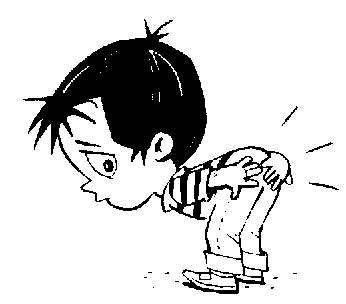
Back in June, my client, Betsy Brown Braun, blogged about spanking. I love what she has to say and wanted to share it with AJGpr readers.
Betsy is a parenting expert and the author of two best-selling books Just Tell Me What To Say and You’re Not The Boss Of Me.
To If Nor Spanking, Then What?
Seems like almost every parent today knows that spanking is verboten. Everyone except that parent who says, “My father spanked me, and I turned out fine.” To him I want to say, You don’t remember how you felt while you were being spanked—the terror, the helplessness, the anger.
Working with parents for 40 years has demonstrated to me that parents spank because they don’t know what else to do that “really works.” It is out of their simmering frustration that they resort to harsh physical actions like spanking, slapping, even pinching, or holding a shoulder just that much too tightly. But it’s all spanking. And it screams helpless parent, regardless of the child’s age, tot or tween. You are showing your weakness.
Children do not need to cry, to be hurt, to be shamed, or to shout “uncle” in order to learn the lesson you are trying to impart. The discipline (from the Latin root word which means learning or teaching) that is needed should be just that–the lesson that teaches not to do that again. It is a lesson that cultivates self-discipline. The child needs to learn; he doesn’t need to be hurt or humiliated. In fact, a child in those heightened emotional states will not learn. Rather, he will be focused on his anger at you, what a mean, bad daddy you are, not even thinking about what he did.
Here are some tips for what to do when you feel like spanking:
- Get a grip on your own anger. Grit your teeth and admit that you feel like walloping your kid. Then commit not to do it.
- Remind yourself that this is an opportunity for you teach and for your child to learn. Often children have to do the wrong thing on their way to doing the right thing. And yes, for that there is a consequence.
- Let the child know that whatever the behavior was, you are stopping it. Remove the child from the scene of the crime.
- Say as little as possible. “There is no throwing balls in the living room!” using your low, slow, icy voice. Mean business.
- Remove and isolate your child to a safe place away from you and the scene. No words.
- The key is to DISENGAGE. Do not give your attention of any kind, negative or positive. Nothing.
- When you have both come back to planet earth, even as long as an hour later depending upon the age of the child (the younger the child, the shorter the time), do your revisit.
- Have a short, direct conversation (and it may be one sided) about what happened and what will happen as a result.
- For children seven years old and younger, have your logical consequence ready to impose. (Logical consequences are directly related to the misbehavior.) You showed me that you do not know how to use balls responsibly. So, you will not be able to use balls of any kind for the rest of the week. If necessary, be prepared to take the rest of the family out to play ball. He’ll feel it! So sorry you can’t play with us
- For children older than seven, in addition to the logical consequence, there might be a removal of privileges, or he might have to earn the money to help pay the cost of replacing the window. He gets it.
- Know that it takes time for the lesson to take hold. Much like microwave cooking, it needs a standing time to begin to sink in.
- There is no one size-fits-all answer. Your response must be crafted to the particular child and the infraction.
- Remember, parenting by imposing fear is neither healthy nor effective.
You and your child need to be on the same team. You are both trying to get him to the same place, the place of making thoughtful, good choices for himself. And the very first chance you get, catch him doing the right thing. Praise works better than punishment and a whole lot better than spanking.
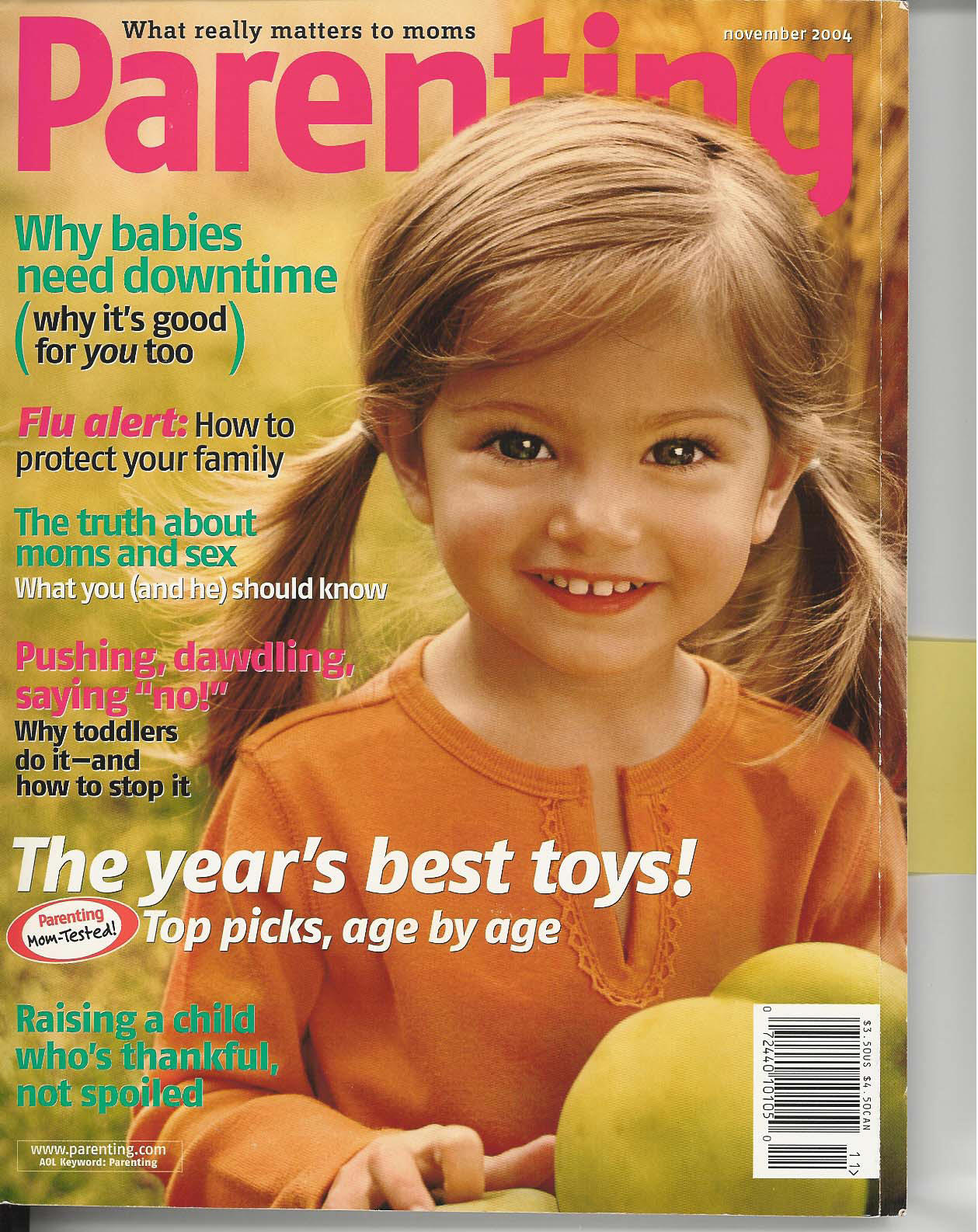
Writer Suzanne Schlosberg reached out to several parenting experts for her story in Parenting magazine on “How To Keep Control And Your Cool – While Your Kids Test Limits Every Which Way They Can.” My client, parenting expert Betsy Brown Braun was among the experts who weighed in on this important topic.
For the full story click here.
Betsy is the best selling author of award winning Just Tell Me What To Say and You’re Not The Boss Of Me,
Dr. Fran Walfish, Psychotherapist to Expert Comment on Governor Jerry Brown Signing Senate Bill 1172
2012
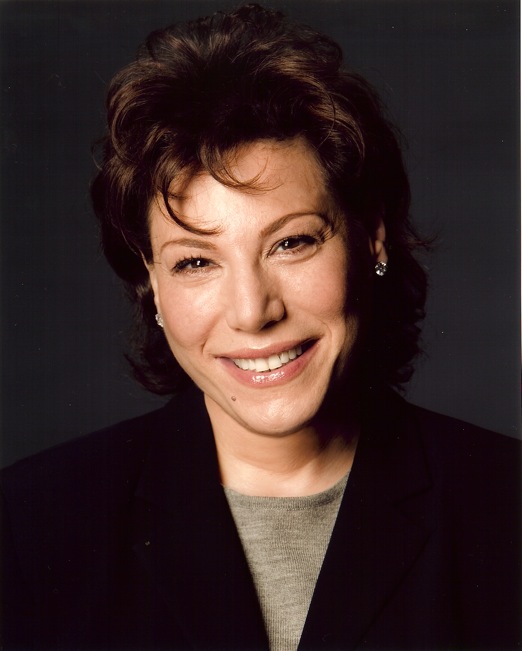

Heidi Smith Luedke reached out to my client, Fran Walfish Psy.D., a Los Angeles-based clinical psychotherapist for her piece in Calgary’s Child about why kids tattle and how to respond.
Here’s the full story:
Nobody likes a tattletale – not even their mother or father. If your child’s playdates and sleepovers are punctuated by whiney reports of misdeeds and injustice, you may be tempted to clear your kid’s social calendar. Not so fast. Interactions with siblings and friends allow kids to practice communication, negotiation and compromise. And dissatisfaction is part of the process.
“In early childhood, it’s normal for kids to share social problems with parents,” says psychologist and school consultant Michael Thompson, Ph.D., author of Best Friends, Worst Enemies: Understanding the Social Lives of Children. At times, they legitimately need our help resolving disputes and soothing hurt feelings. But by second grade, the prohibition against inviting adults into social conflicts is clear. “Kids who tattle get labelled – tattletale, squealer, snitch – and left out,” says Thompson. Bringing infractions to an adult’s attention sets your kid up for friendship failure.
Why kids tattle
Parents might assume kids tattle because they don’t feel empowered to stick up for themselves, says Fran Walfish, Ph.D., a child and adolescent psychotherapist. That’s not true. “Kids tattle because they’ve developed a strong sense of right and wrong and they start policing other people,” says Walfish. Tattletales suffer from an overdose of conscience.
“Tattling at home may also be rooted in sibling rivalry,” says Walfish. An older child might feel they are held to a higher standard than their younger siblings, or that they are disciplined more severely. And they may be right. “Parents need to take an honest look within,” says Walfish. “If you are harsh and judgmental with your children, they’ll act the same way with peers.”
How to respond
It seems obvious: giving attention to a child who tattles will only reward them for tattling. But experts say parents shouldn’t dismiss kids’ reports or tell them to “get over it.” Sometimes kids who tattle just want a safe place to share their concerns.
“Kids won’t say, ‘I need you to listen to this and be outraged on my behalf and then do absolutely nothing,’” says Thompson, “but 90 per cent of the time that is what they want.” When your child comes to you with a story, listen, accept, acknowledge and bear it. Ask questions about how your child plans to handle the situation – that will bring out their inner resilience.
Tattletales who judge and blame are usually more focused on their peers’ behavior than their own. “Position yourself as a mediator,” says Walfish. Kids should present their concerns to each other, not to authority figures. Give each child a chance to speak their piece without interruption or name-calling. You want them to learn how to wrestle with a conflict face-to-face without demeaning the other person.
“This won’t come easy,” Walfish cautions. It is common for parents to get drawn into the dialogue. Step back emotionally so you can coach your child through it without taking sides.
After each child has a chance to talk, ask, “How could you work this out?” Listen to kids’ ideas for addressing the problem. If they don’t have any, offer some suggestions. Let kids choose how to proceed. “The resolution is not nearly as important as the process of working it out,” says Walfish.
Except in extreme circumstances – like when one child is intentionally hurt or belittled – don’t take sides or punish the other child for what a tattletale reported. “Play the role of supportive consultant, not hired gun,” says Thompson. You’ll reinforce the tattler if you act on the information they offered.
Chronic tattling can leave parents feeling frazzled. It may help to arm yourself with kind, matter-of-fact phrases you can use in response, says Walfish. Say, “There are only two grown-ups in this house, and it’s our responsibility to enforce the rules.” Assuring ‘kid cops’ that you are on the job may reduce their need to patrol and shift their attention back to their own activities.
Practice compassion
Not all sharing is tattling, and there will certainly be times when you must intervene to protect your child. Be cautious in your assessment of the situation. “Parents are too quick to define peer behavior as bullying and to accuse other kids, parents or teachers of wrongdoing,” Thompson says. Rushing to judgment reinforces a child’s sense that they are a victim in need of rescue.
It’s usually best to diffuse hurt feelings with empathy instead of going on the offensive. Set the expectation that tomorrow will be a better day. Spend one-on-one time with your child doing something they enjoy. Loving attention can quiet even the noisiest tattletale.


